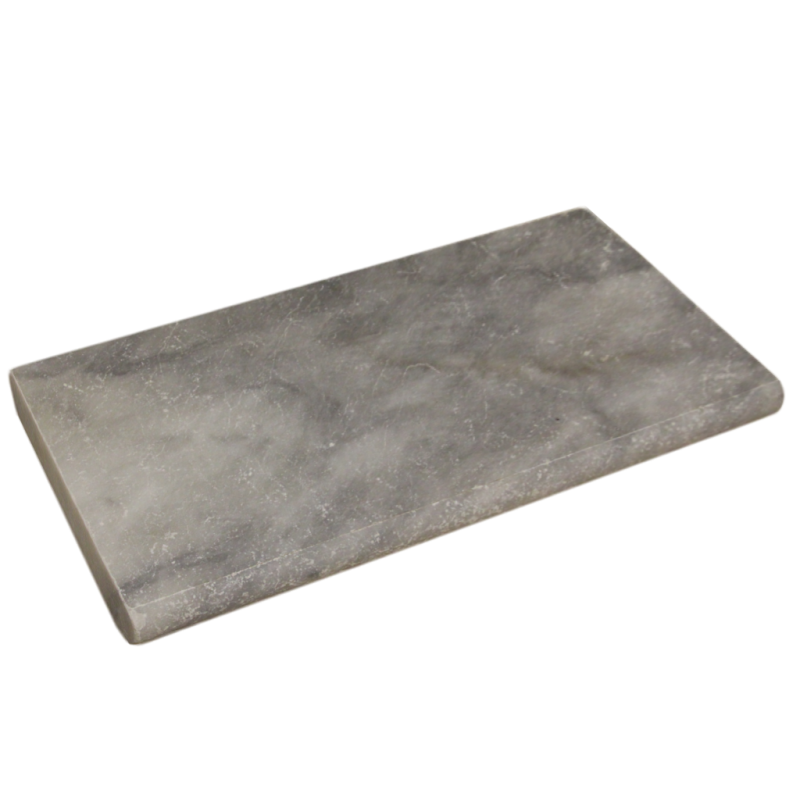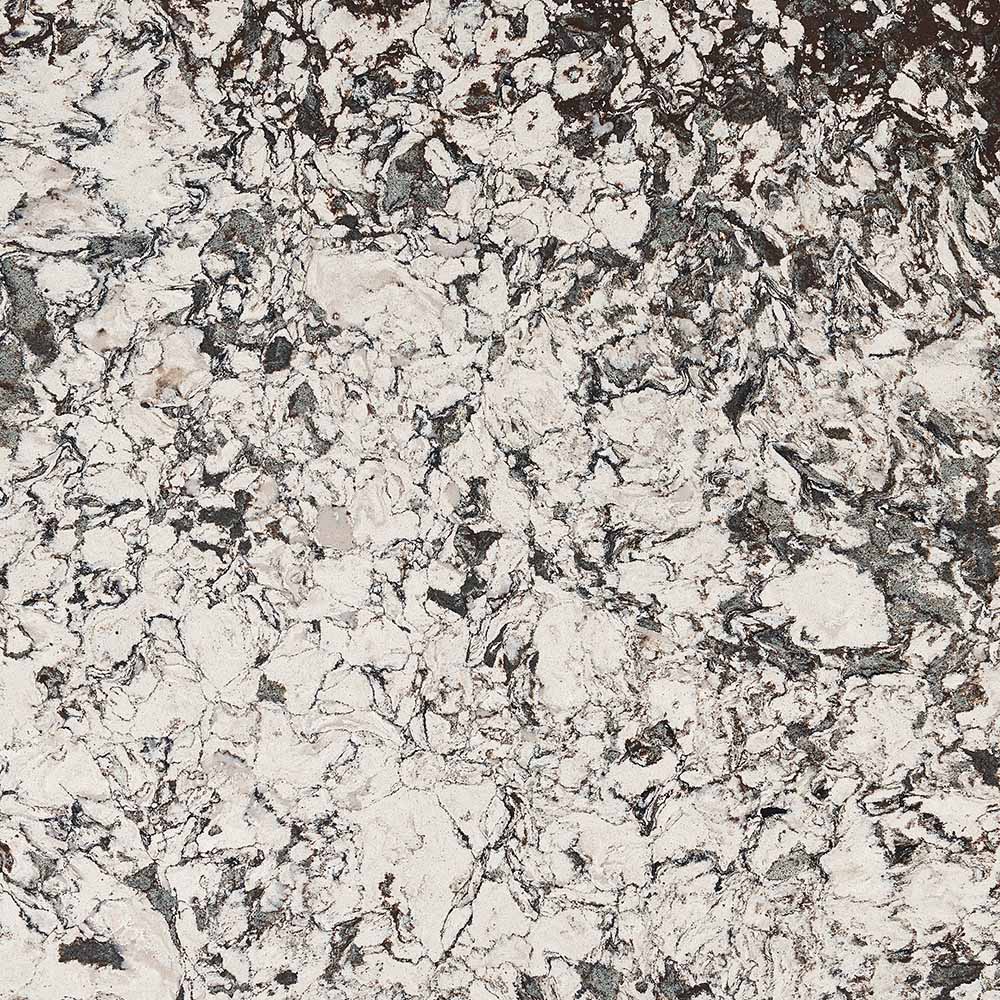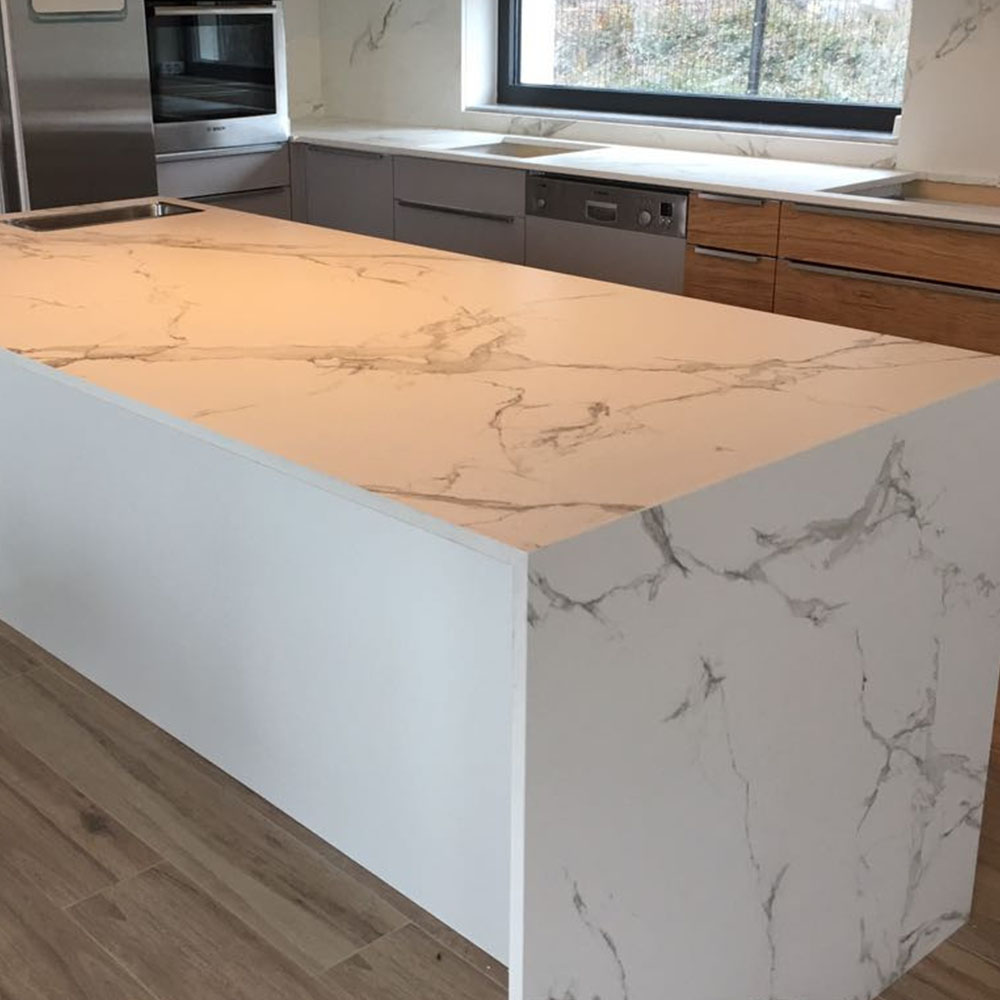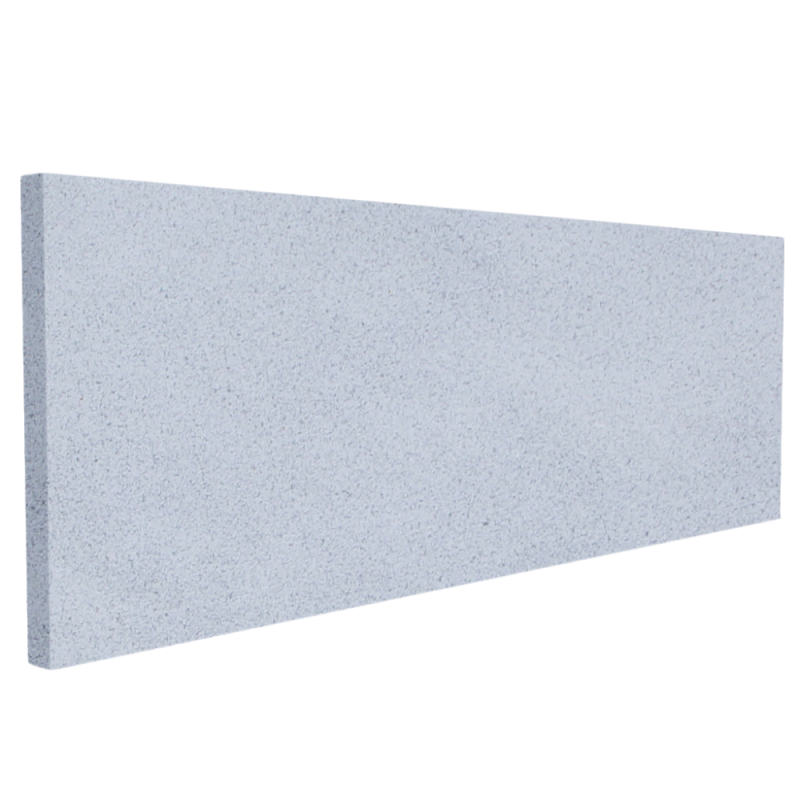When it comes to natural stone, marble is often considered the epitome of elegance and luxury. With its striking veining and coloration, marble has been a top choice for sculptures, architectural features, and home interiors for centuries. But like all natural materials, it requires specific care to maintain its beauty over time. That’s why understanding the art of caring for your marble slabs—knowing the maintenance tips and tricks—is pivotal. This article aims to be your ultimate guide in that regard, offering firsthand knowledge and insights from industry experts. So buckle up! Fairfax Marble offers expert advice on preserving the natural beauty of marble, ensuring your investment stands the test of time.

This article may interest you: Marble or Granite for kitchen countertops
Types of Marble Slabs
Marble comes in various types, each with unique characteristics that require special care. The common types include Carrara, Calacatta, and Crema Marfil. The differences between these types often boil down to the mineral composition, origin, and veining. Knowing your specific type can guide your maintenance efforts, ensuring longevity and beauty.
What to Consider Before Installing Marble Slabs
Before laying down your dream marble floors or countertops, consider several factors like humidity, usage, and location. Marble may not be the best choice for high-moisture or high-traffic areas unless you’re committed to rigorous upkeep. So, assess your lifestyle and choose accordingly.
Basic Maintenance Needs
Caring for marble slabs isn’t rocket science, but it does require consistent and appropriate maintenance. Basic needs include daily dusting, weekly wet mopping, and the occasional deep clean. Understanding the ABCs of maintenance lays the foundation for keeping your marble in mint condition.
Caring for Your Marble Slabs: Maintenance Tips and Tricks
When it comes to the nitty-gritty of maintenance, some tips and tricks could be game-changers. From using pH-neutral cleaners to polishing with specialized products, each step contributes to your marble’s longevity. Not just that, it can save you from costly repairs and a headache down the road.
Daily Maintenance
On a day-to-day basis, make it a point to dust your marble surfaces with a soft, dry cloth. This removes surface dirt and debris that could otherwise lead to scratches. For surfaces like countertops, wiping up spills immediately can prevent potential staining.
- Immediate Attention to Acidic Substances: Be extra vigilant with substances like lemon juice, vinegar, or tomato sauce. If they spill on marble, clean them up immediately to prevent etching.
- Use of Microfiber Cloths: Switch to microfiber cloths for daily dusting. They are gentle on the marble surface and trap dust more effectively.
Weekly Maintenance
In addition to daily dusting, weekly mopping or wiping with a pH-neutral cleaner is advisable. Avoid using acidic or abrasive cleaners, as these can etch the marble surface. Regular cleaning helps to maintain the marble’s natural luster and prevent build-up of grime.
- Mild Detergent Option: If a pH-neutral cleaner isn’t available, you can use a mild detergent diluted in water. Ensure it’s thoroughly rinsed off to prevent soap scum build-up.
- Soft Mop for Floors: For marble floors, use a soft mop with a pH-neutral solution, ensuring that the mop is well-wrung to avoid excess water, which can seep into and damage the marble.

Monthly Maintenance
A monthly deep clean can work wonders. This involves the use of specialized cleaning agents formulated for marble. A deep clean reaches areas regular cleaning can’t, thereby offering a comprehensive cleaning solution for your marble slabs.
- Spot Treatment: Pay attention to areas that might have more wear or stains. Apply the specialized cleaning agent to these spots first.
- Buffing After Cleaning: After a deep clean, gently buff the marble surface with a soft, dry cloth to bring out its natural shine.
Stain Removal Techniques
Accidents happen! But knowing how to deal with them can save your marble from permanent damage. Depending on the type of stain, various home remedies ranging from baking soda to hydrogen peroxide can be effective.
- Coffee and Wine Stains: Create a poultice of baking soda and water, apply to the stain, and leave it covered with plastic wrap overnight. Gently remove it the next day.
- Ink Stains: For lighter marble, use hydrogen peroxide, and for darker marble, use acetone or lacquer thinner. Apply a small amount using a clean cloth and blot gently.

Etching: Causes and Remedies
Marble is susceptible to etching, especially when exposed to acidic substances. The good news is, light etching can often be remedied at home using marble polishing powder, restoring your surface’s original shine.
Safe Cleaning Agents for Marble
Not all cleaning agents are marble-friendly. Opt for pH-neutral cleaners that don’t contain any acidic or abrasive elements. Specialized marble cleaners are available that clean effectively while preserving the stone’s natural beauty.
Harmful Agents to Avoid
Just as there are recommended cleaning agents, there are those you must avoid. Vinegar, lemon juice, and bleach are among the top culprits that can cause irreversible damage to your marble.

Tips for Polishing Marble Surfaces
Polishing is an essential part of marble maintenance. Specialized marble polish can help maintain the stone’s shine and luster, keeping it looking brand new for years to come.
Sealing Marble: When and How
Sealing is an essential preventive measure against stains and etches. Typically, sealing is done during installation and should be repeated every few years depending on use and wear.
Seasonal Considerations for Marble Care
Humidity and temperature changes can affect your marble. Understanding the seasonal needs for your marble slabs can help you tailor your care routine accordingly.
DIY vs Professional Cleaning: Pros and Cons
While DIY maintenance is viable, there are instances where professional help is advisable. Understanding when to opt for which can save both time and money in the long run.
FAQs
What is the best cleaner for marble?
The best cleaner for marble is one that is pH-neutral and specifically formulated for marble surfaces. These cleaners do not contain any acidic or abrasive elements that could harm your marble surface. For daily cleaning, you can also use a simple solution of mild dish soap and warm water, wiping the surface with a soft, damp cloth and then drying it thoroughly.
How often should I seal my marble countertops?
The frequency for sealing marble countertops can vary based on the type of marble and the amount of use it receives. Generally speaking, sealing once a year is a good rule of thumb for most marble countertops. However, for high-traffic areas like kitchen counters, you may want to consider doing it twice a year. Always perform the water droplet test to check the sealer’s effectiveness: if water beads up on the surface, your seal is still good. If it starts to soak into the stone, it’s time to reseal.
Can I use vinegar to clean marble?
No, vinegar is not recommended for cleaning marble surfaces. The acidity in vinegar can cause etching and deteriorate the sealer on your marble. Instead, opt for pH-neutral cleaners or those specifically designed for marble.
Is marble suitable for kitchens and bathrooms?
Marble can be used in both kitchens and bathrooms, but with some caveats. Given its porous nature, marble is susceptible to stains and etching, especially in environments that are exposed to acids and oils, like kitchens. In bathrooms, the high moisture level can also pose challenges. However, if you are committed to the routine maintenance that marble demands, it can indeed be a beautiful addition to both kitchens and bathrooms.
How do I remove stains from my marble floor?
Stain removal from marble floors often depends on the type of stain. For organic stains like coffee or fruit juice, a mixture of baking soda and water can be effective. Create a paste, apply it to the stain, let it sit for a few hours or overnight, and then rinse off. For oil-based stains, you can use a poultice made from cornstarch and water. Always remember to do a spot test first to ensure that your chosen method does not adversely affect the marble.
Conclusion
Caring for your marble slabs doesn’t have to be a chore. With the right tips and tricks up your sleeve, your marble can look as stunning as the day it was installed. By following this comprehensive guide, you are well on your way to preserving the elegance and beauty of your marble for years to come.

